I have a forEach function defined to do "something" with all the items in an array:
function forEach(array, action) {
for (var i = 0; i < array.length; i++)
action(array[i]);
}
var numbers = [1, 2, 3, 4, 5], sum = 0;
So I could do:
forEach(numbers, console.log);
And it would print out all the numbers because 'console.log(array[i])' prints the number to the console. I get that part.
Here's where I'm stuck: If I pass the function below into the place of the action parameter, instead of 'console.log' then at what point does the function know about every element?
forEach(numbers, function(number) {
sum += number;
});
console.log(sum);
// 15
How does it get evaluated? If I pass console.log into the last problem and it still has to be evaluated as 'console.log(array[i])' with the '(array[i])' code next to whatever parameter is being passed in, then doesn't that get applied to the entire function too since that function is the parameter? Such as below:
function(number) { sum += number; }(array[i])

